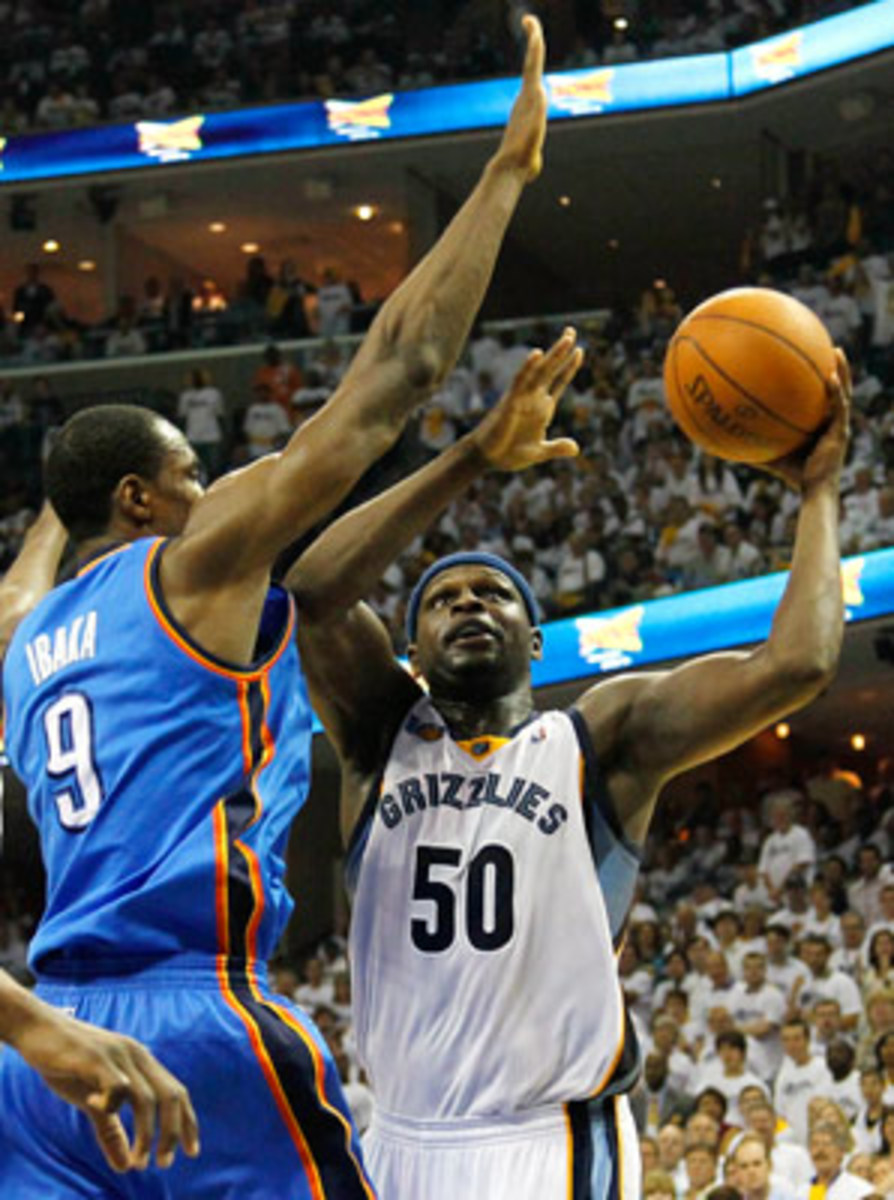Mayo's start helps Grizzlies down Thunder to force decisive Game 7
Of the myriad storylines to emerge from Game 6 -- a resurgent Zach Randolph, a struggling Kevin Durant -- the decision to plug Mayo into Sam Young's starting spot might have played the biggest role in Memphis' 95-83 win. "We weren't spacing the court" was Lionel Hollins' explanation after the game, indicating Oklahoma City's ability to pack the paint and crowd the post was a big factor in Wednesday's Game 5 blowout.
"We felt like if we put a shooter out there, they would have to honor him," Hollins said. "You have to have some balance from the outside."
So goes Randolph, so go the Grizzlies, the Thunder seemed to believe, which is why they sent double-teams, went under screens and did everything short of daring Memphis to beat them from the outside in Game 4. It worked, too: Randolph had a playoff-low nine points on a series-low nine shots with a series-low seven free-throw attempts while Memphis connected on just 25 percent of its three-point attempts.
Different game, different lineup, different story. Mayo -- a 36.4 percent three-point shooter during the regular season -- didn't connect on his first three until nearly nine minutes into Friday's game, but it seemed his mere presence on the floor took Oklahoma City out of its game. The double-teams Randolph saw in Game 5 vanished, along with any hope the Thunder had of stopping him. Randolph pumped in 30 points, utilizing a variety of jab steps, ball fakes and crafty moves that have made him one of the biggest stars of this postseason.
"He was making jump shots, and he was making contested jump shots," Thunder coach Scott Brooks said. "He's third-team All-NBA for a reason. That guy is a player, and when he gets it going, you only can do what you can do and that is contest his shot and force him to take tough shots and he made some tough shots tonight."
Indeed, Randolph made shots. Durant, however, did not. Durant lost his rhythm after picking up two quick fouls early in the first quarter and never got it back. He was visibly frustrated on the bench, the disappointment of having to sit out crucial minutes in an elimination game painted on his face. When he got back in he was pressing, searching for a three-point stroke (1-of-9 from beyond the arc) that just wasn't there.
"I started the game off like I did," Durant said, his voice trailing off. "After that, it [was] downhill."
This isn't the time for Oklahoma City to panic, to drastically alter its game plan. Yes, it will have to tinker with the defense. Mayo can't be left alone, but single coverage just won't work on Randolph, who has made good defenders like Kendrick Perkins, Serge Ibaka and Nick Collison look mediocre. And they will have to control their emotions. Westbrook picked up a technical foul after taking exception to a hard box-out by Shane Battier, and Ibaka and James Harden were whistled for techs of their own. Any Game 7 is emotional and given the chippy nature this series has taken on, this one promises to be doubly so.
But Oklahoma City is still the team that went 30-11 on its home floor in the regular season and has dropped just one game -- a Game 1 loss to the Grizzlies -- at the Ford Center this postseason. And Memphis has to wonder just how much they have left after expending so much energy rallying from a 10-point deficit in the second half.
Simply, this series has become impossible to predict. At the podium on Friday, Brooks repeated what he has said since the start of the series: These are two very evenly matched teams with little margin for error. One great game, one bad game by Durant ("He's saving himself for Sunday," Hollins quipped) or Westbrook, Randolph or Mayo could tilt it in one direction. There hasn't been a Game 7 in the 2011 NBA playoffs. This one promises to be pretty good.





